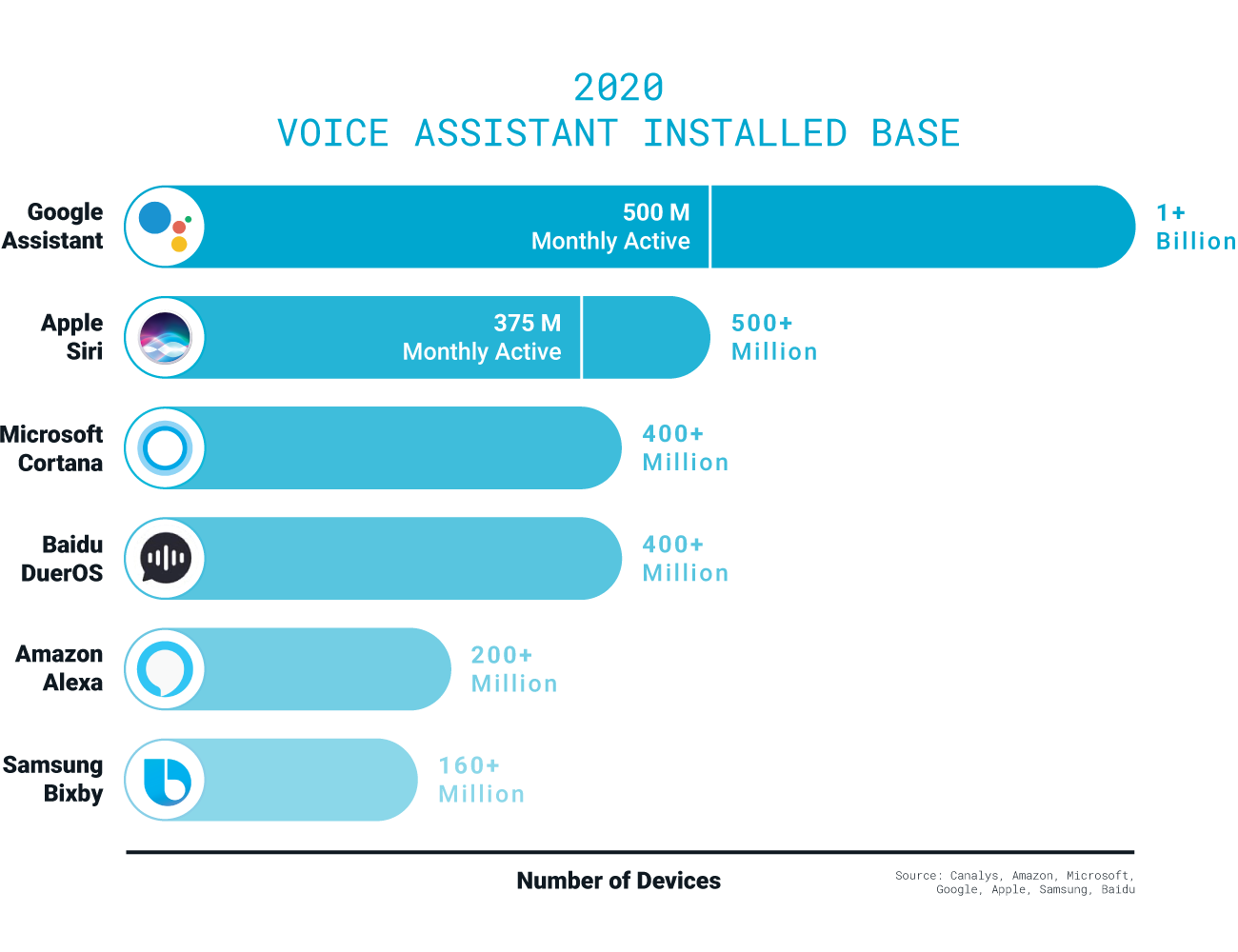2020 has been all but normal. For businesses and brands. For innovation. For people.
The trajectory of business growth strategies, travel plans and lives have been drastically altered due to the COVID-19 pandemic, a global economic downturn with supply chain and market issues, and a fight for equality in the Black Lives Matter movement — amongst all that complicated lives and businesses already.
One of the biggest stories in emerging technology is the growth of different types of voice assistants:
- Niche assistants such as Aider that provide back-office support.
- Branded in-house assistants such as those offered by BBC and Snapchat.
- White-label solutions such as Houndify that provide lots of capabilities and configurable tool sets.
With so many assistants proliferating globally, voice will become a commodity like a website or an app. And that’s not a bad thing — at least in the name of progress. It will soon (read: over the next couple years) become table stakes for a business to have voice as an interaction channel for a lovable experience that users expect. Consider that feeling you get when you realize a business doesn’t have a website: It makes you question its validity and reputation for quality. Voice isn’t quite there yet, but it’s moving in that direction.
Voice assistant adoption and usage are still on the rise
Adoption of any new technology is key. A key inhibitor of technology is often distribution, but this has not been the case with voice. Apple, Google, and Baidu have reported hundreds of millions of devices using voice, and Amazon has 200 million users. Amazon has a slightly more difficult job since they’re not in the smartphone market, which allows for greater voice assistant distribution for Apple and Google.

Image Credits: Mark Persaud
But are people using devices? Google said recently there are 500 million monthly active users of Google Assistant. Not far behind are active Apple users with 375 million. Large numbers of people are using voice assistants, not just owning them. That’s a sign of technology gaining momentum — the technology is at a price point and within digital and personal ecosystems that make it right for user adoption. The pandemic has only exacerbated the use as Edison reported between March and April — a peak time for sheltering in place across the U.S.
Comments
Post a Comment